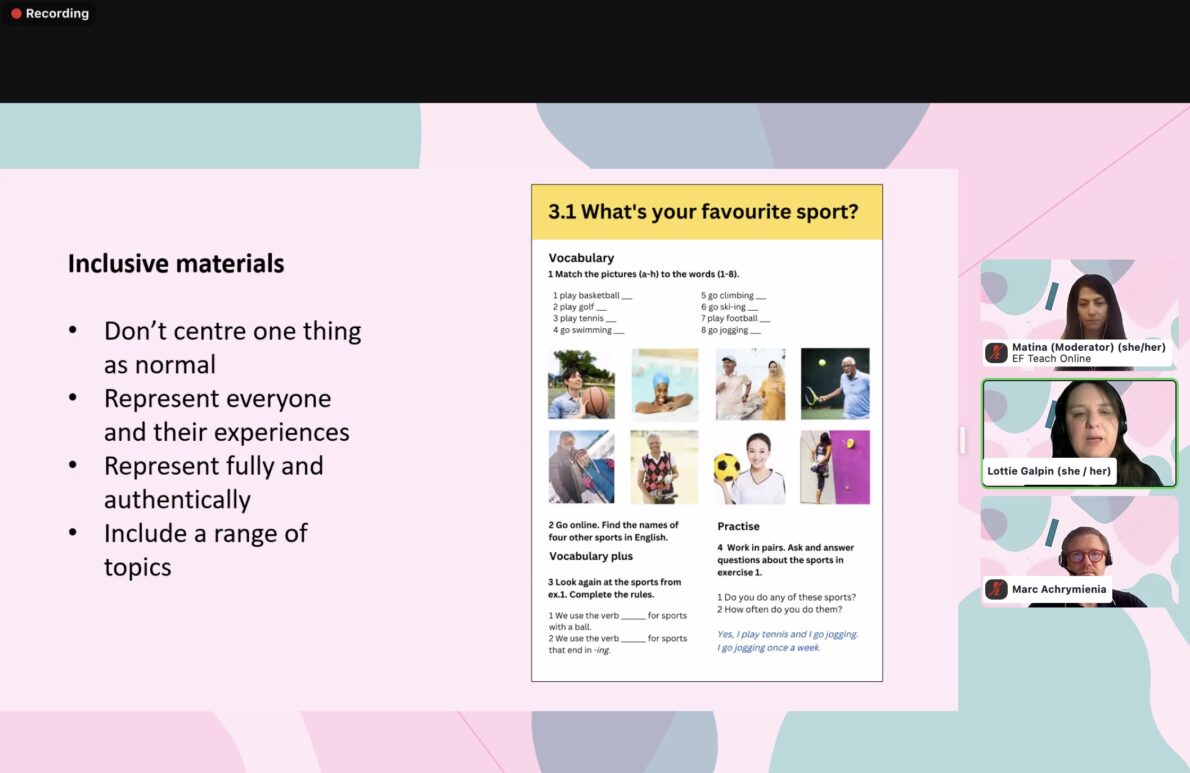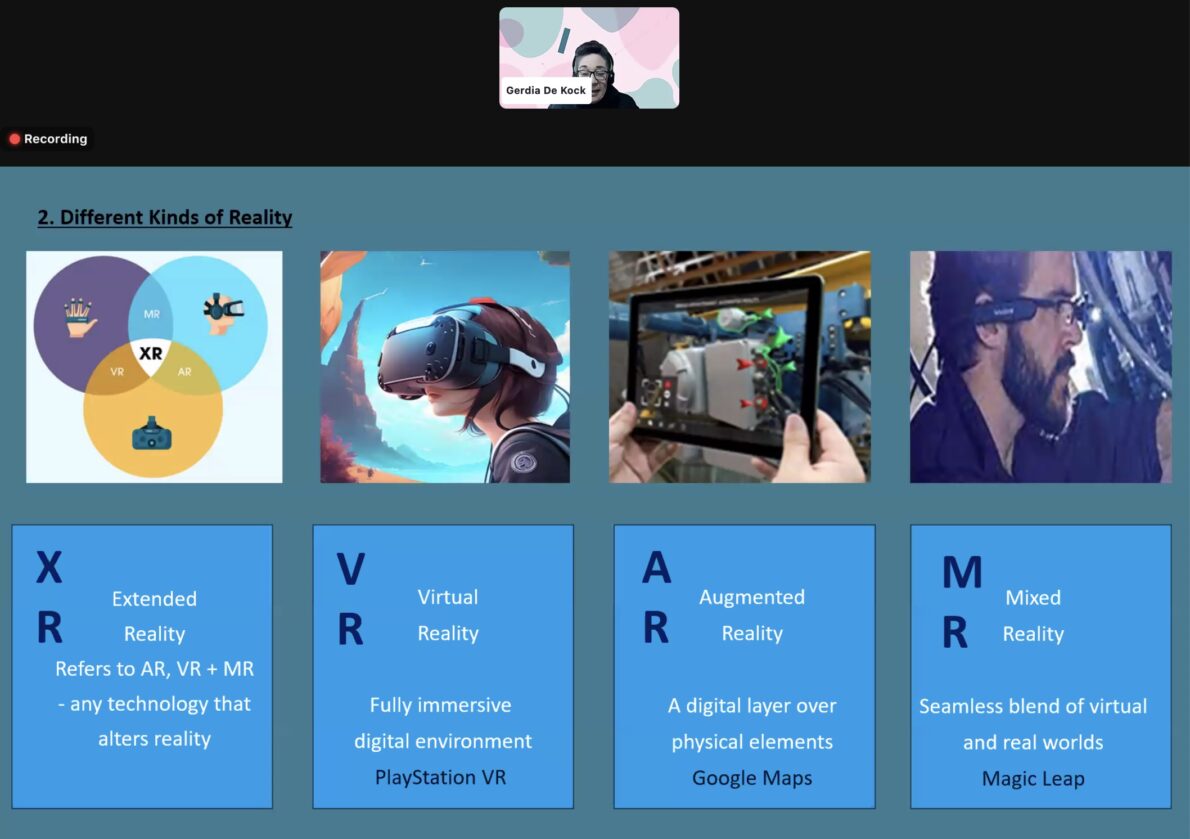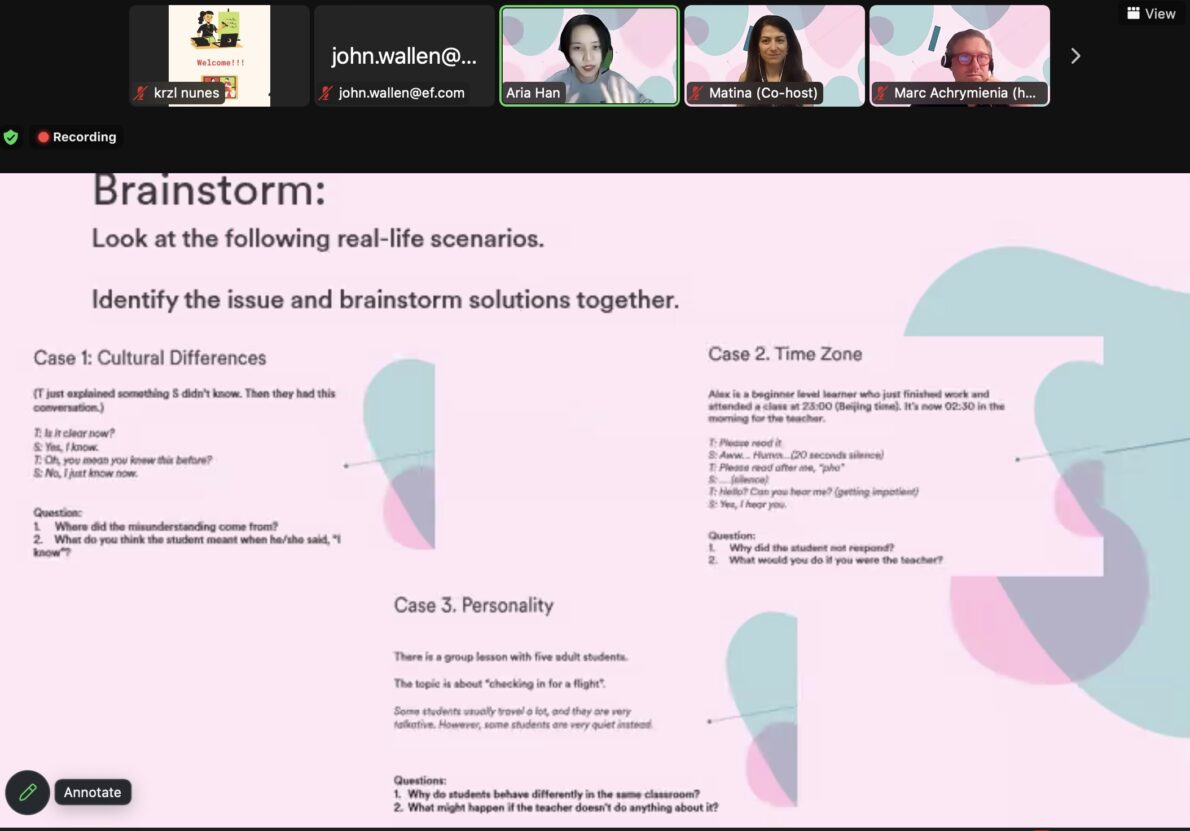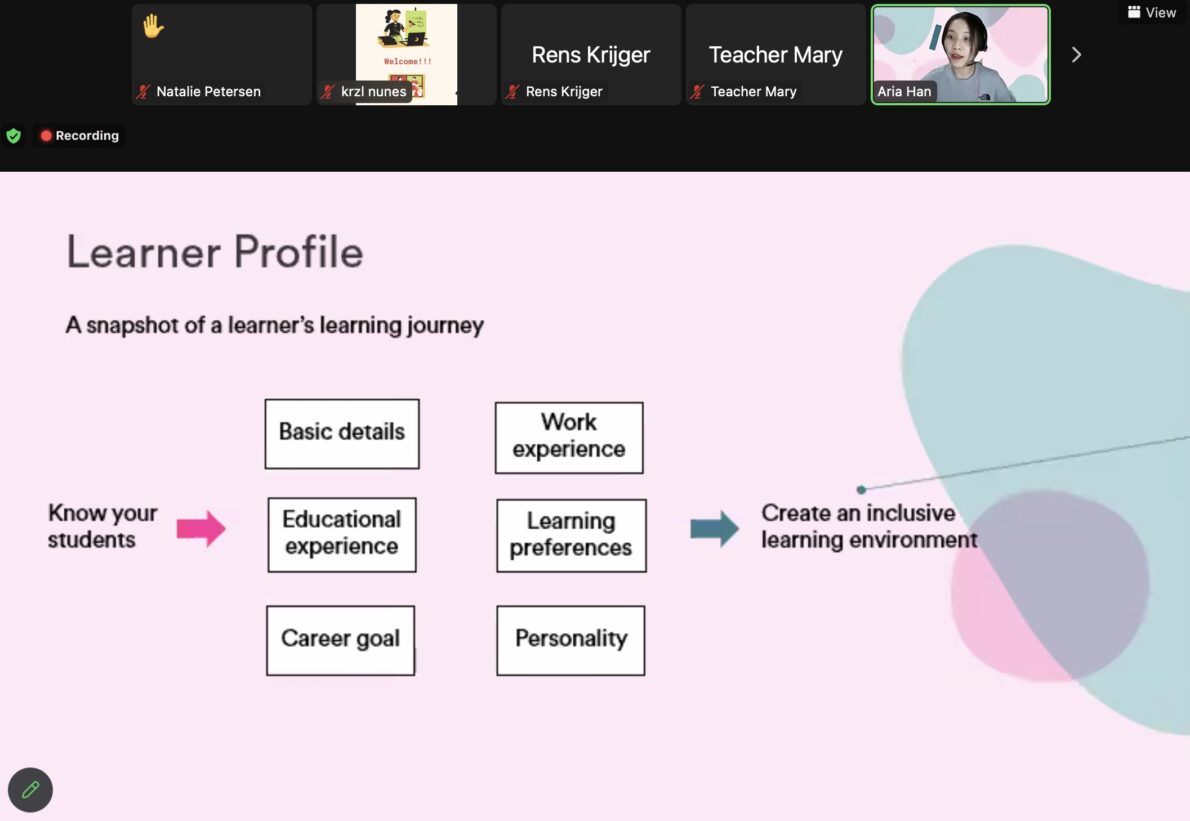Keeping online English teachers abreast of timely issues and the latest tech and online teaching methodologies, EF Teach Online held its 3rd Annual Online English Teacher Conference on June 21st. With the theme Global Perspectives on Online English Language Teaching, the conference was attended by English language educators from around the world.
The online conference featured presentations, panel discussions, and workshops on various topics such as student diversity, creating inclusive materials, and defeating systemic bias in English language teaching (ELT).
Looking for training to teach English online? Learn about Bridge’s Teaching English Online Specialized Certification suite of courses.
Sharing the latest research and trends in online ELT
Matina Gatsou, EF Teach Online’s Director of Teacher Training and Development, shared that most of the conference attendees this year were from Russia, Italy, and China.
“Our main goal is to bring online English educators together in a shared space to talk about the latest research, trends, and evidence-based practices in the online English teaching industry,” she said. “At EF Teach Online, we regularly follow the latest educational trends, conduct research, develop regular professional development resources and, of course, work with thousands of wonderful online teachers worldwide. We also have countless good tips and practices to share with everyone teaching English online these days.”
From business communication consultants to materials creators to bilingual teachers, this year’s conference included speakers from varied backgrounds sharing their areas of expertise. According to Gatsou, the shift in the English language teaching profession calls for this diversity of speakers.
“With AI disturbing multiple industries, we thought it is important certain important topics and perspectives don’t get missed in the process of integrating anything new that comes our way,” she said. “Topics such as the antiquated binary native/non-native divide, how humans communicate online and offline, and what we can do better at materials design, to name a few. It is important to know what truly matters and be equipped with the right tools as we are going through the changes our profession is currently facing.”
Read about eight tips to help you teach English as a global language.
Key highlights from the conference
Creating inclusive ELT materials
One of the English language teaching areas focused on during the conference was materials design. Lottie Galpin, an ELT consultant and publishing specialist, delved into creating inclusive English language teaching materials. In her presentation, she first emphasized the existence of many diverse social groups these days. “People are complex,” she said. “They are much more than we see, more than they appear to us.”
However, a lot of ELT materials like traditional English coursebooks show only certain identities and lack representation of other social and cultural groups, such as non-binary gender communities. Citing an example, Galpin showed a book cover that portrayed heterosexual, white, young, and thin students. “What is usually presented in the typical English textbook often fails to reflect the diversity of the world,” she said.

Galpin also highlighted that representing other social groups or communities is an important part of preparing students for the real world and helping them understand the diversity of people. She shared simple ways English teachers can make their teaching materials more inclusive, which included introducing new class topics and diversifying images used in class materials.
Gatsou reiterated the ideas of Galpin’s session. “There are many biases that interfere with choices we make when we develop learning material, and sometimes these biases are unconscious,” she said. “Holding ourselves accountable and making deliberate choices to include the world in our materials, making sure everyone is represented, is not easy. But nowadays there is a plethora of tools available to help us, such as the Better Allies website.”
Get top tips for creating materials for the EFL classroom.
Emerging technologies in online education
As more and more educators incorporate artificial intelligence into their instruction, the use of technology in online English teaching was also explored at the conference. In her presentation, EF teacher Gerdia de Kock shared various types of trending technologies used in education today, such as AI, mixed realities (MR), gamification, and automated assessments. For each technology, she also shared some of the most popular apps and platforms that teachers have used to make their lessons and assessments more interactive, personalized, and collaborative.

Although integrating emerging technologies in online teaching provides teachers with a lot of benefits, de Kock also stressed some of its drawbacks. For example, she reminded teachers that not all students have equal access to the internet, creating a digital divide. In addition, data collection and storage may also put students’ data security at risk. With this said, she also emphasized the need for clear accountability frameworks and the ownership of responsibility if technology fails.
Learn how you can use AI as your personal assistant to streamline your teaching tasks.
Understanding learner diversity
Another dynamic session during the conference focused on learner diversity. Aria Han, a bilingual teacher and trainer, described diverse students learning together as an “act of independently [learning] together.” To open the brainstorming sessions, she first asked attendees how their students differ from one another and listed some ideas such as learners’ ages, experiences, beliefs, and personalities. Then, she divided the audience into three breakout rooms and assigned each one a real-life scenario wherein the group had to identify the issue and brainstorm solutions to deal with learners’ cultural, personality, and time zone differences.

After the breakout rooms session, Han invited everyone back to share their insights on the cases they discussed.
Han also shared a model of a learner’s profile teachers can use to better understand their students and get a clearer picture of their learning journeys, which included understanding their educational and work experiences, career goals, and learning preferences. Finally, she posed the question, “What can we do to get to know our students more?”
Learn about the ways teaching English online to groups can increase your job prospects.

EF Online English Teacher Conference goals
This year, EF Teach Online’s Annual Online English Teacher Conference provided fresh insights from industry leaders and ELT peers as they shared perspectives on contemporary issues and new technologies. In an interview after the conference, Gatsou expressed the hope that the educators who attended took away “ideas, techniques, and strategies they can start employing in their lessons.”
She also shared that the goal of the conference is to provide a space to come together with like-minded educators from around the world to discuss challenges and experiences and access the information they need to do their jobs well.
“In short, good professional development,” Gatsou said. “Hopefully, on top of that, [participants] feel they can trust us to pass on the latest research and give them a platform, a voice, to objectively discuss difficult topics.”
For Gatsou, her conference experience was exhilarating. “Along with the rest of the academic team at EF Teach Online, we worked hard to put together this conference and we were all so proud to see the hundreds of attendees who chose to join us throughout the entire day,” she said. “Their engagement and feedback are already driving decisions we are making for next year’s conference!“








